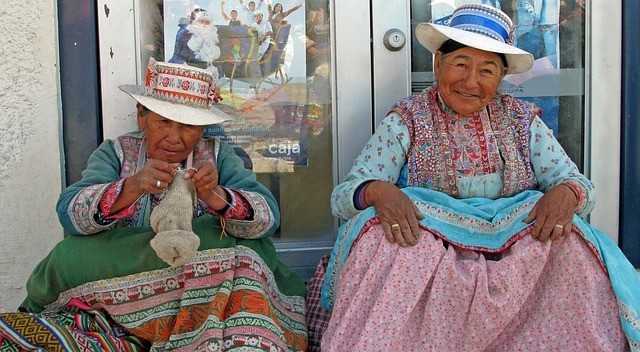views
To the Policy Makers, the Government Agencies, and the Matriarchs Who Built Our World
Prologue: The Cold Floor
The first thing she feels is the cold of the floor. For sixty years, Maria’s feet have met this dawn chill—a silent signal to begin the work of sustaining others. Her hands, now a lattice of veins and time, have performed a trillion-dollar symphony of unpaid labor: warming milk, stitching wounds, balancing ledgers of emotion and need. She is the architect of human capital, the invisible engine of GDP, and now, as she faces a pension statement that mocks her lifetime of contribution, she is among the most vulnerable.
Her story is not unique. It is a global echo. It is the story of the feminization of aging, a demographic certainty with a catastrophic policy lag. It is the story of how we built our world on the backs of women’s unpaid labor and are now failing to secure the world they must inhabit in return.
The Foundation They Built—An Unaccounted Economy
We speak of economic growth, of booming markets and productivity. Rarely do we account for the foundational layer upon which it is all built. The International Labour Organization (ILO, 2018) assigns a staggering value to this work: $11 trillion annually. This is the estimated worth of unpaid care work globally, the majority performed by women. This is not a “helping hand”; this is the essential infrastructure that allows the formal economy to function.
This labor creates a ripple effect of empowerment:
-
-
It enables male partners to participate fully in the continuous, uninterrupted workforce.
-
It nurtures the next generation of workers, taxpayers, and leaders. The World Health Organization (2022) consistently finds that maternal health and education are the single greatest predictors of a child’s lifelong outcomes.
-
It subsidizes national healthcare systems. By providing free, long-term care for the elderly and infirm, women like Maria save governments billions, acting as a shadow workforce for the welfare state.
-
They were the original investors in our societal stability. Yet, their investment is missing from the ledger.
The System’s Empty Return
The cruel paradox is that the system they propped up is structurally designed to fail them when they need it most. The data paints an incontrovertible picture of systemic neglect:
-
-
THE PENSION ABYSS: Due to career interruptions for caregiving—the “motherhood penalty”—and systemic gender pay gaps, women’s pension income is 26-40% lower than men’s (OECD, 2023). They live longer, but with less. This is not a personal failing; it is a policy one.
-
THE HEALTH DISPARITY: They outlive men but spend more of those years in poor health, often managing multiple chronic conditions alone. Their mental health is battered by social isolation—a direct result of outliving partners and having fewer financial resources for social engagement (WHO Decade of Healthy Ageing, 2020).
-
THE CARE CHASM: The same hands that rocked the cradle and steadied the elderly now find nothing to hold onto. Public long-term care systems are chronically underfunded and inaccessible, presuming a family caregiver—almost always a woman—will fill the void. But who cares for the caregiver when she becomes the one in need?
-
This is the great unraveling. The very demographic that provided the care is now the one most in need of it, and the system has no answer.

The Reckoning—A Call to Conscience and Security
This is far more than a social or women’s issue. It is a crisis of national and human security. Insecure, impoverished, and isolated elder populations strain public health systems, depress local economies, and represent a profound moral failure that erodes the social contract.
We therefore appeal to the conscience and commitment of the United Nations and global leaders to treat this not as a marginal concern, but as a central imperative for achieving the Sustainable Development Goals (SDGs).
-
-
This is SDG 5 (Gender Equality): True equality is impossible without economic justice across the entire lifespan. We cannot speak of empowering girls and young women while abandoning the elders they will become.
-
This is SDG 8 (Decent Work and Economic Growth): It is time to formally recognize, reduce, and redistribute unpaid care work and ensure all caregivers have access to decent work and social protection.
-
This is SDG 3 (Good Health and Well-Being): We must build health systems with a gender lens, focused not just on adding years to life, but ensuring quality of life for those years, particularly for older women.
-
OUR APPEAL IS THIS: We call for a global mandate to “Formalize the Informal Care Economy.” This means:
-
-
Integrating Unpaid Care into National Accounts: Using satellite accounting to make this work visible and valued in national GDP.
-
Pension Justice: Legislating pension credits for years of caregiving, ensuring time spent raising children or tending to parents does not equal a sentence of poverty.
-
Building Public Care Infrastructure: Investing in affordable, quality long-term care as a public good, not a private luxury.
-
Epilogue: The Balance Sheet
Maria’s cold floor is a warning. It is the physical manifestation of a societal chill, a system that takes warmth and gives back coldness. The account is still unsettled.
The story of our century will be written by how we respond to our aging population. Will it be a story of neglect and short-sightedness? Or will it be a story of redemption—where we finally, formally, honor the foundational work of half our population and ensure that their longevity is a reward, not a penalty?
The data is clear. The morality is obvious. The time for policy is now. We must move from narrative to action, and pay the debt we owe to the Marias of the world.
Conclusion: A Debt of Love—An Appeal to the Sons, Daughters, and Grandchildren
Look around the table at your next family gathering. See the woman who taught you to tie your shoes, who soothed your fevers, and whose silent sacrifices funded your dreams. By 2030, there will be 774 million of these women globally. She is your mother, your grandmother, the aunt who shaped you. Her hands, which once held yours so firmly, may now tremble. Her future, the very quality of her dignity, is the final exam on a lifetime of lessons she taught you about love, responsibility, and character.
This is not an abstract policy issue. It is the most personal accounting of our lives.
To the Sons and Daughters She Empowered:
You are her legacy. The education she prioritized, the stability she provided, the emotional intelligence she nurtured—these are the tools of your success. The "motherhood penalty" she incurred is directly correlated to your "opportunity bonus." Your career was built on the foundation of her unpaid labor. The question is not if you owe her a debt, but how you will choose to repay it. Will it be through resigned anxiety, juggling her care between meetings? Or will you demand a world where she has access to affordable care, financial security, and a community that honors her, allowing you to be her child again, not her overwhelmed nurse?
To the Grandchildren She Adores:
You are the beneficiaries of her wisdom and love. The world you inherit will be judged by how it treated her generation. Will you inherit a system that discards its elders, teaching you that value is only found in productivity? Or will you inherit a new paradigm, one that respects the profound contribution of care and guarantees that those who give it are cherished in return? The fight for her dignity is the fight for the world you will soon lead.
To the Powerful Men She Raised:
You sit in boardrooms, in legislative halls, in positions of immense influence. You are there because a woman—your mother—subsidized your path. She managed the home front so you could conquer the world. You now have the power to manage the systems that will determine her quality of life. The same strategic thinking you apply to business and governance must now be applied to her care. Build the nursing homes you would be proud to have her inhabit. Fund the pension systems that truly value her lifetime of work. Vote for the policies that ensure the woman who gave you everything does not end up with nothing. Your success is her resume. Now, make her safety your legacy.
This is our collective reckoning. The 774 million aging women are not a burden; they are our moral compass. They are the human infrastructure of our past and the ethical foundation of our future.
Protecting them is not just a policy choice. It is a debt of love, and the time to repay it is now. Let us build a world worthy of the women who built us..
--- copyright notification---
© 2025 by Mariza L. Lendez. All rights reserved. www.chikicha.com
This article "The Unpaid Debt: Why Our Aging Women Are a National Security Issue?" is forms part of my dissertation. All materials herein are protected by copyright and academic intellectual property laws. No part of this work may be reproduced, published, or distributed in whole or in part without express written permission from the author, except for academic citation or fair use with proper attribution. Based on verified data, peer-reviewed literature, and insights from national and global agencies and with the help of AI for deep research.
Citation Format
Lendez, Mariza (2025). [The Unpaid Debt: Why Our Aging Women Are a National Security Issue?] In "Designing a Purpose-Driven Retirement Model Based on the IKIGAI Philosophy" (unpublished dissertation). Philippine Women's University.

REFERENCES
This call to action is supported by the data of:
-
-
United Nations, Department of Economic and Social Affairs, Population Division (2022). World Population Prospects 2022, providing the 2030 demographic projections.
-
International Labour Organization (ILO, 2018). Care work and care jobs for the future of decent work, quantifying the value of unpaid labor.
-
Organisation for Economic Co-operation and Development (OECD, 2023).Pensions at a Glance, highlighting the gender pension gap.
-
-
-
World Health Organization (WHO). (2020). Decade of Healthy Ageing: Baseline Report.
-
World Health Organization (WHO). (2022). World Mental Health Report: Transforming mental health for all.
-




















Comments
0 comment